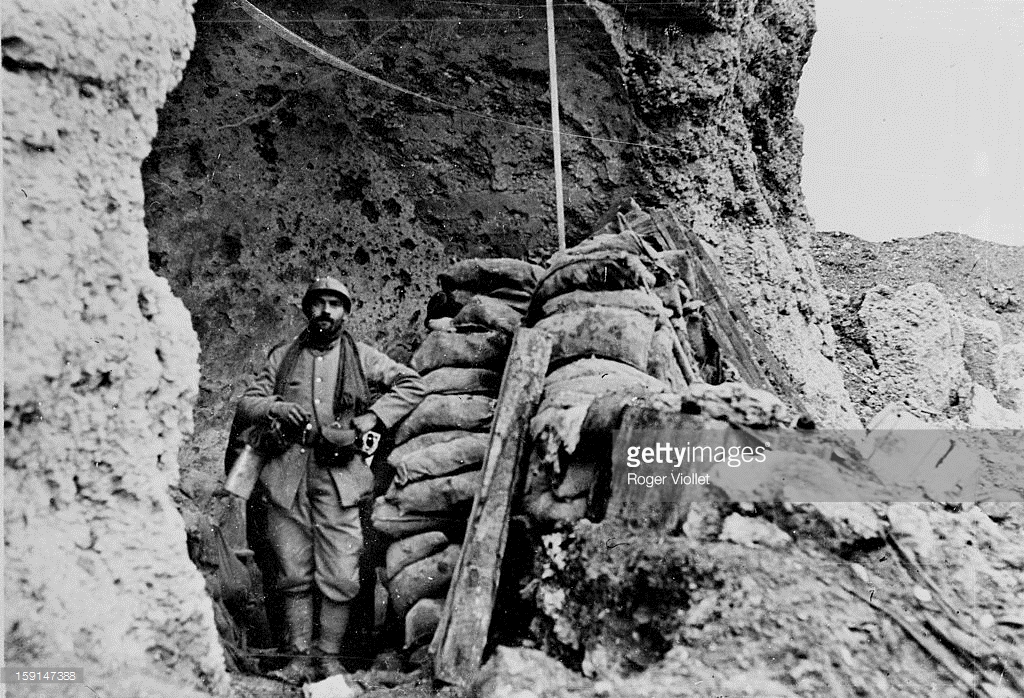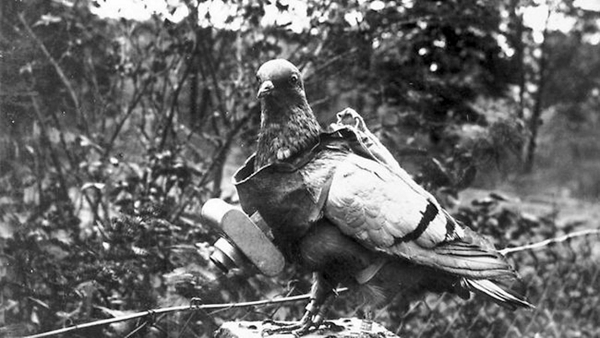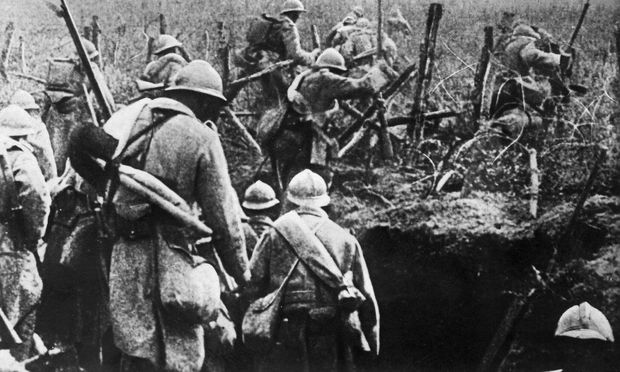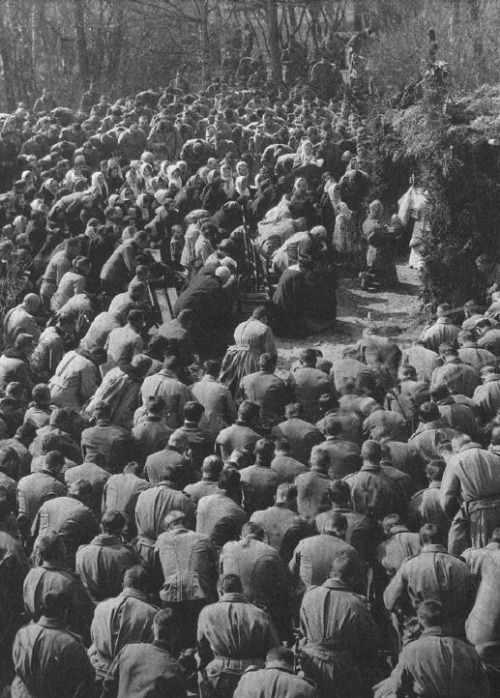In the West, Death of a Pigeon
In the East, Collapse of an Army
Special to The Great War Project.
(6-10 June) On June 7th a century ago in northern France near Verdun, Fort Vaux falls to the Germans. The French may have been beaten in this defense of Verdun, but it’s an awe-inspiring story. And it involves a bird.
By this time only six-hundred French troops hold the Fort for three excruciating months. “The defenders,” writes historian Martin Gilbert, “had fought in subterranean passages, amid the stench of decomposing bodies that could not be buried, under massive bombardment including gas shells, for almost a week.”
“Pulverized by German artillery, they had been reduced to their last twelve gallons of water.”

French defender at Fort Vaux, near Verdun, June 1916.
Reports Gilbert, “A carrier pigeon, which had been badly effected by gas on its previous flight, took out the fort’s last message.” It reads…
“We are still holding out…relief is imperative…this is my last pigeon.”
Then the pigeon dies.
As a result in an extraordinary gesture, the French army awards its Legion d’Honneur to the bird.

Both sides made extensive use of carrier pigeons during the war, to send messages and photograph the battlefield.
“Of the many thousands of carrier pigeons who flew with daily messages through the war zones of all the contending armies,” reports Gilbert, “it was the only one to be honored by a military decoration.”
Nevertheless the French can hold out no longer. The last force of six-hundred French soldiers defending Vaux is taken prisoner. And then another extraordinary part of the story.

French soldiers launch an attack near Verdun, circa June 1916.
Gilbert writes, “So impressed was the German Crown Prince at the courage of the fort’s commander, Major Reynal, that he not only congratulated him but presented to him the captured sword of another French officer, Raynal’s sword having been lost. Such courtesies after the grim battle were part of an ancient chivalry, but elsewhere the battle went on.”
“As the struggle continued west of Fort Vaux, about twenty French soldiers, with their bayonets fixed ready for action, were buried alive in a trench.”
In the larger picture, the French continue to hold Verdun, and the battle there grinds on.
On the Eastern Front, some surprising developments in the Brusilov offensive. The Russians gain much ground, while their adversary, the Austrian army, is coming apart.
In these days a century ago, the Austrian army on the Eastern Front is on the verge of collapse. According to historian Alexander Watson, “the collapse was followed by heavy fighting, panic, and retreat.”
“The Russians pursued the Austrians,” Watson writes, “but overextended supply lines and a lack of cavalry hindered their pursuit.”
Nevertheless, the Russian advance is enough to strike terror among Austrian civilians.
“Scenes from the Brusilov offensive in 1916,” writes historian Geoffrey Wahro, “shocked even jaded Austrians and showed just how little stomach most of the [Habsburg] monarchy’s soldiers had for the war.”
One senior general spoke of his “ruined army.”

Russian preparations for the Brusilov offensive, which brought the collapse of the Austrian army.
“Eyewitnesses watched in wonderment as a vast (and unexpected) Austro-Hungarian counterattack proved in actual fact to be a mass surrender as thousands of [Austrian] troops cast away their rifles and ran at the Russian lines with their hands in the air.”
In these days a century ago, some 350,000 Austrians surrendered to the Russians.
But as usual in this murderous war, even significant victories do not change the overall picture of the war.
The deadly stalemate continues.

July 7th?